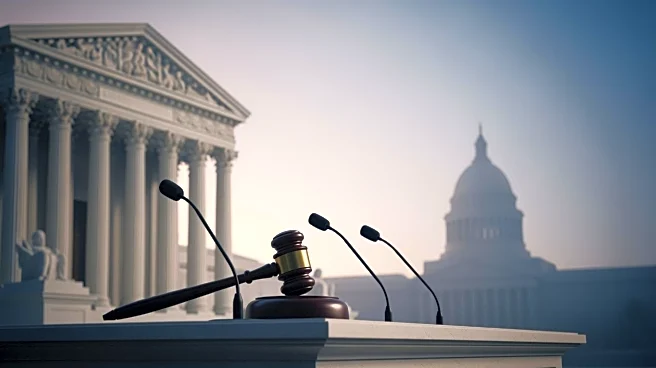What's Happening?
The Supreme Court is reviewing a case concerning Louisiana's congressional map, which has been challenged for allegedly diluting black voting power. The case stems from a lower court ruling that found
the previous map unlawful, leading to the creation of a second majority-black district. Critics argue that race was overly emphasized in this decision, and the new map is now being contested. Louisiana has a 30% black population, yet only one of its six congressional districts previously allowed African Americans a realistic chance to elect a candidate of their choice. The state has since changed its stance, arguing that the redistricting provisions of the Voting Rights Act are unconstitutionally discriminatory.
Why It's Important?
The Supreme Court's decision on this case could have significant implications for the enforcement of the Voting Rights Act and minority representation in congressional districts. If the court rules against the creation of race-based districts, it could lead to a reduction in minority influence in elections, affecting the political balance in states with significant minority populations. This case also highlights the ongoing debate over the role of race in electoral processes and the interpretation of constitutional amendments related to voting rights.
What's Next?
Depending on the outcome, Louisiana may need to redraw its congressional map, potentially impacting the representation of minority voters. The decision could set a precedent for other states, influencing how they approach redistricting and minority representation. Political leaders and civil rights organizations are likely to respond, advocating for or against changes to the Voting Rights Act. The ruling could also affect upcoming elections, altering strategies for political parties and candidates.
Beyond the Headlines
The case underscores the tension between efforts to ensure fair representation for minority groups and the push for race-neutral policies in electoral processes. It raises questions about the balance between protecting minority rights and adhering to constitutional principles of equality. The outcome could signal a shift in the judicial approach to civil rights legislation, impacting not only voting rights but also broader issues of racial equality in the United States.










